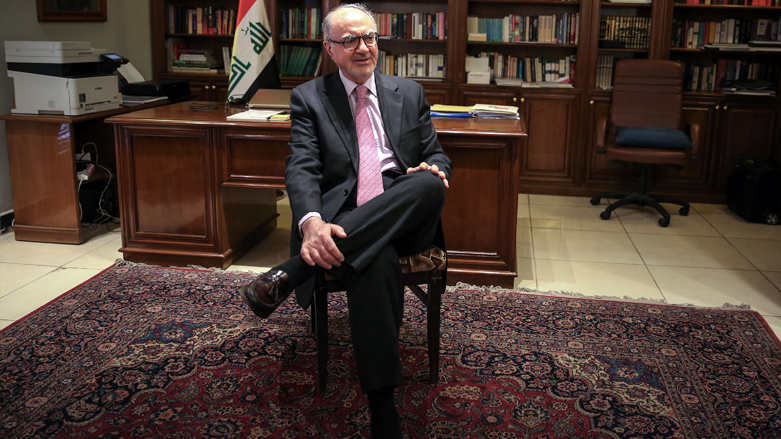Iraq in ‘existential’ economic situation, finances worse than 2005: Finance Minister

ERBIL (Kurdistan 24) – Iraq’s newly appointed Finance Minister Ali Allawi, in an exclusive interview with AFP, announced that Iraq, economically, is in an existential condition that its financial situation is worse than the post-2003 liberation.
Iraq’s vulnerable economy, whose source of revenue is heavily oil-dependent, has been experiencing a huge blow in the face of the COVID-19 pandemic outbreak in the country. Iraq is currently struggling to manage its bloated public pays with slashed oil prices that significantly dried state’s coffers.
Finance Minister Ali Allawi, who’s also Iraq’s finance minister in post-invasion period, recently reassumed the office to manage the country’s economic dire situation.
“The finances are worse than it was in 2005 or 2006,” Allawi told AFP, as he explained the current economic situation as “existential” for Iraq.
Iraq’s public payroll in the post-invasion was only a million employees while its public servants increased to 4.5 million with 2.5 retirees at an oil price around $35, AFP analyzed.
Allawi’s warning
The finance minister warned, during his interview with AFP, that Iraq could not be managed, economically, by hoping that oil prices would increase so it can cover the state expenses.
“If oil prices stay at this level for a year, and our expenses stay the same, without a doubt we’re going to hit a wall,” Allawi told AFP.
In order to save the economy from sinking, the finance minister said that he would propose an economic reform plan to Iraq’s Council of Representatives in three months, including austerity measures that last for two years, he added to AFP.
Besides the reform plan, he hopes to cut the high-paid bureaucrats stipend, access fund from the International Monetary Fund (IMF) and World Bank as well as to prevent “double-dripping” those who have more than a salary in the government, Allawi explained his intentions. He added that he would also work to boost Iraq’s non-oil revenues to thwart the potential shocks caused by oil’s price volatility.
Iraq’s post-US-led liberation economy was in a bitter shape as it had suffered more than a decade-long UN imposed sanctions due to the former Ba’athist regime’s notorious acts.
Iraq, according to International Transparency Index, is the 16th corrupt country in the world that more than $400 billion disappeared from public treasury following the 2003 invasion.
Editing by Karzan Sulaivany
